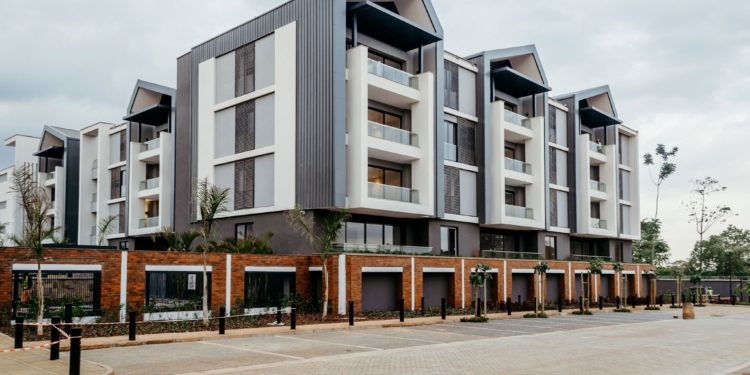As the African Real Estate market continues on its dynamic evolution to meet the demands of the global market, a new frontier is captivating the attention of astute investors – consular housing. This, among other burgeoning sub-asset classes like data centres, health facilities, and purpose-built student accommodation, is offering a fresh perspective on long-term rental income, diverging from the conventional asset classes of commercial offices, retail spaces, residential apartments, and warehousing. But what exactly is consular housing, and why should investors watch for this asset class?
Read more: Laptrust Imara I-REIT Records a Positive Performance
Consular housing typically refers to housing accommodations provided to consular officers or diplomats who are stationed in a foreign country to represent their home country’s interests. In most scenarios, these abodes are owned or leased by the sending country’s government and are reserved for their diplomatic staff in that country. Foreign governments prefer that these residences nestle in close proximity to their embassies, characterized by lower levels of traffic and high levels of security. And here’s the kicker: typically, because demand in such areas tends to be high, they are willing to pay premiums to secure these sought-after locations.
Due to its alignment with rigorous international health, safety, and quality standards, as well as its emphasis on security, this form of housing development isn’t readily accessible within consular circles, particularly in Africa. Additionally, barriers to entering the field of consular accommodation development are rather substantial. This is largely because many consulates tend to favour collaborating with firms that possess a proven history, expertise, and practical experience, ensuring the project’s timely completion according to specified guidelines and stringent budgets. It is safe to say that the world of consular housing is one where excellence isn’t just a virtue but a necessity.
Read more:Importance Of Market Research Before Investing In Real Estate
Zooming in on Nairobi, Kenya, the city boasts of a staggering 109 foreign resident missions nestled within its bounds, that is according to the Ministry of Foreign and Diaspora Affairs. The statistics paint a picture of a significantly matured diplomatic community that presents the Kenyan Real Estate sector with a promising, consistent demand for consular housing. But, a curious gap persists. Even though there is potential demand, the supply of consular housing stock in Nairobi that meets international standards is limited, and Rosslyn Grove stands as the sole example of such housing. Rosslyn Grove, a 90-unit high-security diplomatic residence completed in August 2022, was designed to meet the United States government’s exacting diplomatic specifications and is fully pre-leased to the United States government. This crowning complex was developed by Gateway Real Estate (GREA), the development affiliate of the Mauritanian-based Grit Real Estate Income Group (Grit) and Verdant Ventures and has since clinched the coveted title of “Best High-End Residential Development” at the 6th Africa Property Investment (API) Summit in Johannesburg, September 2022.
GREA’s visionary stride in the concept is also visible in Ethiopia’s capital, Addis Ababa, where Elevation Residences, a 112-unit international standard diplomatic residential tower soars. In a parallel manner to Kenya, Elevation Diplomatic Residences stands as the singular consular housing development in Ethiopia that adheres to international quality and security standards, albeit Ethiopia hosts the world’s third-largest diplomatic community, trailing only behind Washington DC and Brussels.
Read more: Kenya Set To Benefit From Africa’s First Real Estate Data Hub
Evidently, there exists an undeniable void within the market, beckoning diligent developers to step in and fulfil the growing need for ample diplomatic residences throughout Africa. The scarcity of diplomatic dwellings echoes the challenging confluence of specifications and requirements, community integration, and bureaucratic intricacies, which have resulted in a majority of African Real Estate developers shying away from these ventures. Nonetheless, there are gleaming upsides in the development of such housing for consular staff. In addition to developers earning reliable rental income from these properties, developers are often able to secure preferential funding rates for consular accommodation developments. This is because these foreign governments often support these projects, which makes banks more willing to give loans at better rates.
In the grand tapestry of Africa’s real estate narrative, consular housing stands as an untamed frontier of potential not only in Kenya but throughout the continent, and disregarding this growing niche would mean passing up a substantial opportunity of significant proportions.
Email your news TIPS to editor@thesharpdaily.com
















